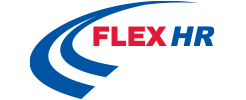Motivating Employees Through Strategic Career Planning and Advancement
Money For Lunch turned to Flex HR’s CEO, Jenny Morehead to discuss how companies are finding it more challenging than ever to motivate and retain top talent in today’s competitive job market. Unemployment rates are holding low, and so employees have ample options and are continuously evaluating whether their current role provides opportunities for advancement. Organizations need to prioritize professional development to engage and incentivize their people now more than ever to be able to retain their valuable talent.
Managers play a pivotal role in championing employee’s career growth. But with limited positions available, how can they motivate the team? While you may not have a promotion to offer every employee, you can cultivate engagement and loyalty by focusing on long-term career development.
It is essential to implement strategies to support professional growth and advancement in order to equip your people to thrive in the years ahead. Below we outline some best practices for managers to motivate employees in their careers, even when job openings are scarce.
Incorporate Development into Performance Reviews
The annual or bi-annual performance review meeting provides the perfect opportunity to discuss career development and collaborate on growth goals. Managers should make it a priority to have meaningful conversations about what each employee wants to accomplish in the next 12 months and beyond. Ask insightful questions to understand their interests, strengths, and aspirations. Then, work together to outline 2-3 concrete objectives that will help the employee gain new skills, take on additional responsibilities, or work toward a promotion. Make sure to document these objectives and check in regularly to track progress. Setting aside dedicated time to focus on career advancement during reviews demonstrates the company’s commitment to professional growth.
Create Individualized Development Plans
While managers should provide guidance, each employee needs an individualized plan tailored to their goals. Avoid a one-size-fits-all approach by getting to know what motivates each person. Some may want to move up to leadership roles, while others are interested in expanding technical expertise. Validate all career goals and discuss what it will take to get there.
Map out targeted training programs, stretch assignments, mentorships, and other growth opportunities that align with the employee’s unique aspirations. Ask for their input and ideas while you work together to build the plan. Revisit it often to update progress and adjust as needed. Customized development plans show employees their professional growth is a priority.
Assess Long-Term Potential
It’s short-sighted to look at employees just in their current role. Great managers take a big-picture perspective and consider what employees could achieve in the next 5-10 years. Assess strengths they can continue leveraging. Identify untapped skills to cultivate or new areas where they could excel. Share your perceptions of their potential and ask for their own self-assessment.
Have candid conversations about capabilities, passion areas, and how they envision their futures at the company. This assessment enables more strategic career planning based on growth potential, not just immediate job performance.
Maintain Records to Identify Internal Candidates
Documentation is key for identifying your top in-house talent when opportunities arise. Keep detailed records of each employee’s career development plans, training completed, and project histories. When the time comes for promotions or high-visibility assignments, you’ll be able to easily recognize qualified internal candidates. They’ll appreciate you advocating for their advancement. Prioritizing and rewarding growth motivated employees to continuously improve
their skills.
Make Professional Growth a Company Priority
For optimal motivation, professional development must be woven into the culture, not just discussed annually. Company leaders should implement mentor programs, training initiatives, tuition reimbursement, and other resources to provide ongoing support. Managers need to have advancement criteria built into their own evaluations. When the entire organization rallies around career growth, employees are empowered and inspired to take charge of achieving their goals.
With some strategic planning, managers can champion professional development and motivation even when job openings are limited. By incorporating it into reviews, creating customized plans, assessing potential, documenting progress, and making it a company-wide priority, you can enable employees to thrive for years to come.
Contact us now to discuss your HR needs.


